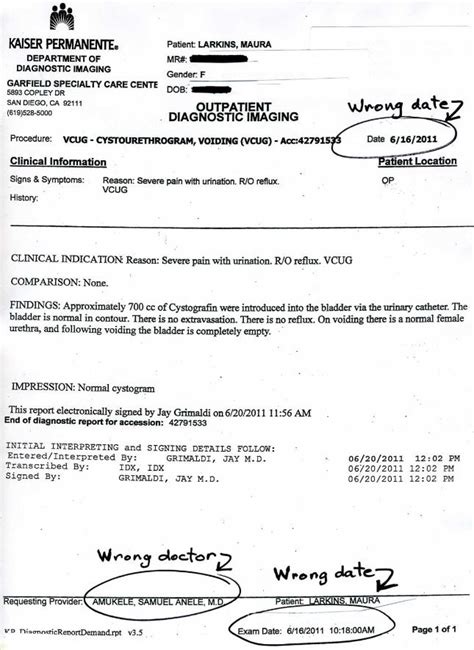Intro
Find top-rated Kaiser Permanente doctors, expert physicians providing high-quality medical care, including primary care, specialty services, and preventive medicine, with a focus on patient-centered healthcare and integrated medical services.
Kaiser Permanente is one of the largest and most successful health care organizations in the United States, with a long history of providing high-quality medical care to its members. The organization has a strong network of skilled and dedicated doctors who are committed to delivering excellent patient care. With a focus on preventive care, Kaiser Permanente doctors work closely with their patients to prevent illnesses, manage chronic conditions, and improve overall health and well-being. In this article, we will delve into the world of Kaiser Permanente doctors, exploring their role, benefits, and what sets them apart from other medical professionals.
The importance of having a good doctor cannot be overstated. A skilled and caring doctor can make all the difference in a patient's health and well-being, providing personalized care, answering questions, and addressing concerns. Kaiser Permanente doctors are known for their expertise, compassion, and commitment to their patients. They work closely with other healthcare professionals, including nurses, pharmacists, and specialists, to provide comprehensive care that meets the unique needs of each patient. Whether it's managing a chronic condition, treating an illness, or providing preventive care, Kaiser Permanente doctors are dedicated to delivering the best possible care to their patients.
Kaiser Permanente's approach to healthcare is centered around the patient, with a focus on preventive care, education, and empowerment. The organization's doctors work closely with their patients to identify health risks, develop personalized care plans, and provide ongoing support and guidance. This approach has been shown to improve health outcomes, reduce healthcare costs, and enhance patient satisfaction. With a strong emphasis on teamwork, communication, and collaboration, Kaiser Permanente doctors are able to provide seamless care that meets the complex needs of their patients. From routine check-ups to complex surgeries, Kaiser Permanente doctors are committed to delivering high-quality care that is tailored to the unique needs of each patient.
Kaiser Permanente Doctors: Benefits and Advantages

Some of the key benefits of Kaiser Permanente doctors include:
- Comprehensive care: Kaiser Permanente doctors provide comprehensive care that meets the physical, emotional, and social needs of their patients.
- Preventive care: Kaiser Permanente doctors focus on preventive care, which helps to prevent illnesses, manage chronic conditions, and improve overall health and well-being.
- Advanced technology: Kaiser Permanente doctors have access to advanced medical technology, including electronic health records, telemedicine, and other digital tools.
- Collaborative care: Kaiser Permanente doctors work closely with other healthcare professionals, including nurses, pharmacists, and specialists, to provide seamless care that meets the complex needs of their patients.
- Ongoing education: Kaiser Permanente doctors are committed to ongoing education and professional development, which enables them to stay up-to-date with the latest medical research, technologies, and best practices.
How Kaiser Permanente Doctors Work

The process of working with a Kaiser Permanente doctor typically begins with an initial consultation, during which the doctor will assess the patient's health needs, develop a personalized care plan, and provide ongoing support and guidance. Kaiser Permanente doctors work closely with other healthcare professionals, including nurses, pharmacists, and specialists, to provide seamless care that meets the complex needs of their patients. The organization's doctors are also committed to ongoing education and professional development, which enables them to stay up-to-date with the latest medical research, technologies, and best practices.
Some of the key steps involved in working with a Kaiser Permanente doctor include:
- Initial consultation: The patient meets with the doctor to discuss their health needs, develop a personalized care plan, and provide ongoing support and guidance.
- Health assessment: The doctor assesses the patient's health needs, including their medical history, lifestyle, and health goals.
- Care planning: The doctor develops a personalized care plan that meets the unique needs of the patient, including preventive care, treatment, and ongoing support.
- Ongoing support: The doctor provides ongoing support and guidance to the patient, including answering questions, addressing concerns, and providing education and resources.
Kaiser Permanente Doctors: Specialties and Services

Some of the key specialties and services offered by Kaiser Permanente doctors include:
- Internal medicine: Kaiser Permanente doctors provide comprehensive care for adults, including preventive care, diagnostic testing, and treatment for a range of medical conditions.
- Family medicine: Kaiser Permanente doctors provide comprehensive care for families, including preventive care, diagnostic testing, and treatment for a range of medical conditions.
- Pediatrics: Kaiser Permanente doctors provide comprehensive care for children, including preventive care, diagnostic testing, and treatment for a range of medical conditions.
- Obstetrics and gynecology: Kaiser Permanente doctors provide comprehensive care for women, including prenatal care, childbirth, and treatment for a range of women's health conditions.
- Surgery: Kaiser Permanente doctors provide surgical services for a range of medical conditions, including elective and emergency surgeries.
Becoming a Kaiser Permanente Doctor

Some of the key steps involved in becoming a Kaiser Permanente doctor include:
- Earn a bachelor's degree: The first step to becoming a Kaiser Permanente doctor is to earn a bachelor's degree from an accredited undergraduate institution.
- Attend medical school: The next step is to attend medical school, where the individual will earn a Doctor of Medicine (M.D.) or Doctor of Osteopathic Medicine (D.O.) degree.
- Complete a residency program: After medical school, the individual must complete a residency program, which provides hands-on training in a clinical setting.
- Obtain licensure: The individual must obtain a medical license to practice medicine in their state.
- Join Kaiser Permanente: The final step is to join Kaiser Permanente, which involves applying for a position, completing an interview process, and meeting the organization's hiring requirements.
Kaiser Permanente Doctors: Career Opportunities and Advancement

Some of the key career opportunities and advancement possibilities for Kaiser Permanente doctors include:
- Leadership roles: Kaiser Permanente doctors can take on leadership roles, such as department chair or medical director, to oversee clinical operations and guide strategic decision-making.
- Specialized training: Kaiser Permanente doctors can pursue specialized training in a particular area of medicine, such as cardiology or oncology, to enhance their skills and expertise.
- Research and education: Kaiser Permanente doctors can participate in research and education initiatives, such as clinical trials or teaching programs, to advance medical knowledge and improve patient care.
- Mentorship: Kaiser Permanente doctors can serve as mentors to junior physicians, providing guidance and support as they develop their clinical skills and build their careers.
Kaiser Permanente Doctors: Patient Satisfaction and Outcomes

Some of the key patient satisfaction and outcomes metrics for Kaiser Permanente doctors include:
- Patient satisfaction ratings: Kaiser Permanente doctors have high patient satisfaction ratings, with patients reporting high levels of satisfaction with their care.
- Health outcomes: Kaiser Permanente doctors have been shown to improve health outcomes, including reducing hospital readmissions, improving blood pressure control, and increasing cancer screening rates.
- Quality metrics: Kaiser Permanente doctors meet or exceed national quality metrics, including measures of preventive care, chronic disease management, and patient safety.
Conclusion and Next Steps
In conclusion, Kaiser Permanente doctors are highly trained and skilled medical professionals who are dedicated to delivering high-quality care to their patients. With a focus on preventive care, advanced medical technology, and collaborative care, Kaiser Permanente doctors provide comprehensive care that meets the unique needs of each patient. Whether you are a patient, a medical professional, or simply interested in learning more about Kaiser Permanente doctors, we hope this article has provided valuable insights and information.We invite you to share your thoughts and experiences with Kaiser Permanente doctors in the comments section below. If you have any questions or would like to learn more about Kaiser Permanente doctors, please do not hesitate to contact us. Thank you for reading, and we look forward to hearing from you.
What is the role of a Kaiser Permanente doctor?
+Kaiser Permanente doctors provide comprehensive care to their patients, including preventive care, diagnostic testing, treatment, and ongoing support.
What are the benefits of working with a Kaiser Permanente doctor?
+The benefits of working with a Kaiser Permanente doctor include comprehensive care, preventive care, advanced technology, collaborative care, and ongoing education.
How do I become a Kaiser Permanente doctor?
+To become a Kaiser Permanente doctor, an individual must earn a bachelor's degree, attend medical school, complete a residency program, obtain licensure, and join Kaiser Permanente.
